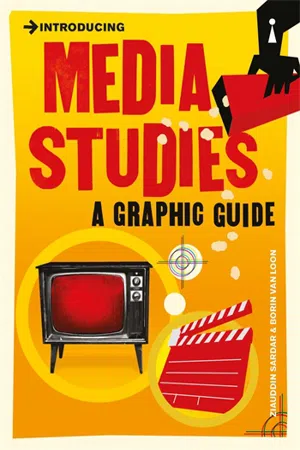
- 176 pages
- English
- ePUB (mobile friendly)
- Available on iOS & Android
About This Book
The media is ubiquitous. Every day we watch hours of TV, listen to the radio, read newspapers and magazines, go to the cinema, sit in front of videos or surf the Web. These information commodities exercise enormous influence and power over all of us. Introducing Media Studies explores the complex relationship between the media, ideology, knowledge and power. It provides a scintillating tour of media history and presents a coherent view of the media industry, media theory and methods in media research. It explains how 'the audience' is constructed and how it in turn interprets the content and meaning of media representation. We also learn how to analyse film, deconstruct advertising and appreciate how TV and the press shape public opinion. The media is a condition of our existence and, in an unprecedented way, the pervading shape of our history. No one can afford to neglect a critical understanding of its omnipresence. Here is an entertaining and informative book, accessible to students and general readers concerned with the increasing power, influence and proliferation of the media.
Frequently asked questions
Information
Why Should We Study the Media?
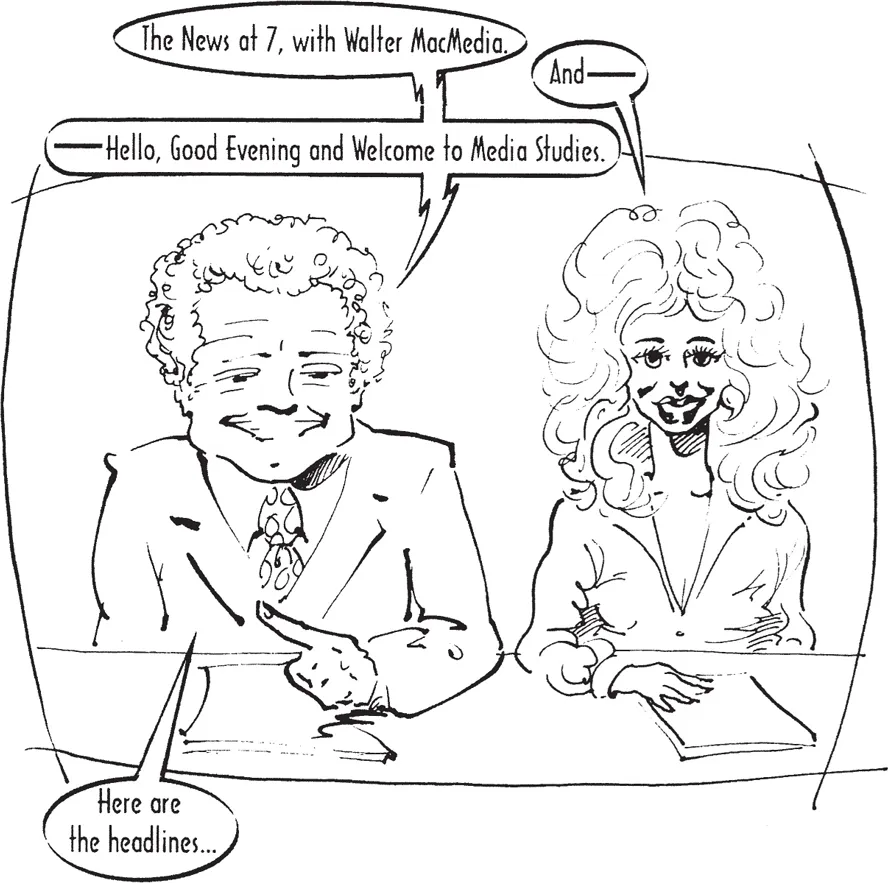
And—
—Hello, Good Evening and Welcome to Media Studies.
Here are the headlines…
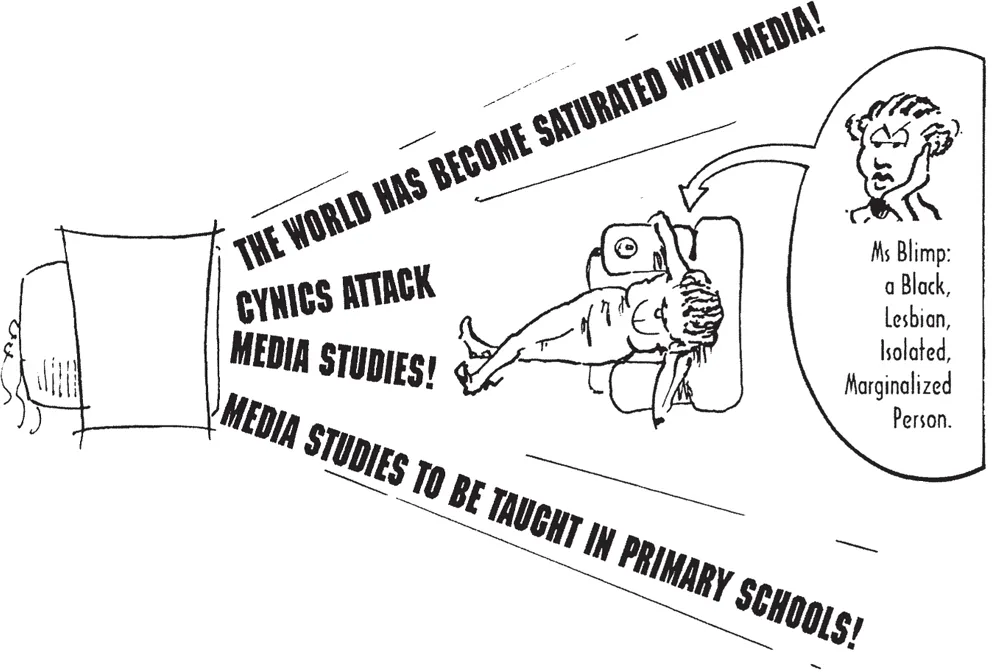


Get off my screen you white, Anglo-Saxon, middle class, Protestant person with pretentious black hairdo.

More WASPS!
The media exercise enormous influence and power on our daily lives…
This is the main rationale for media studies.
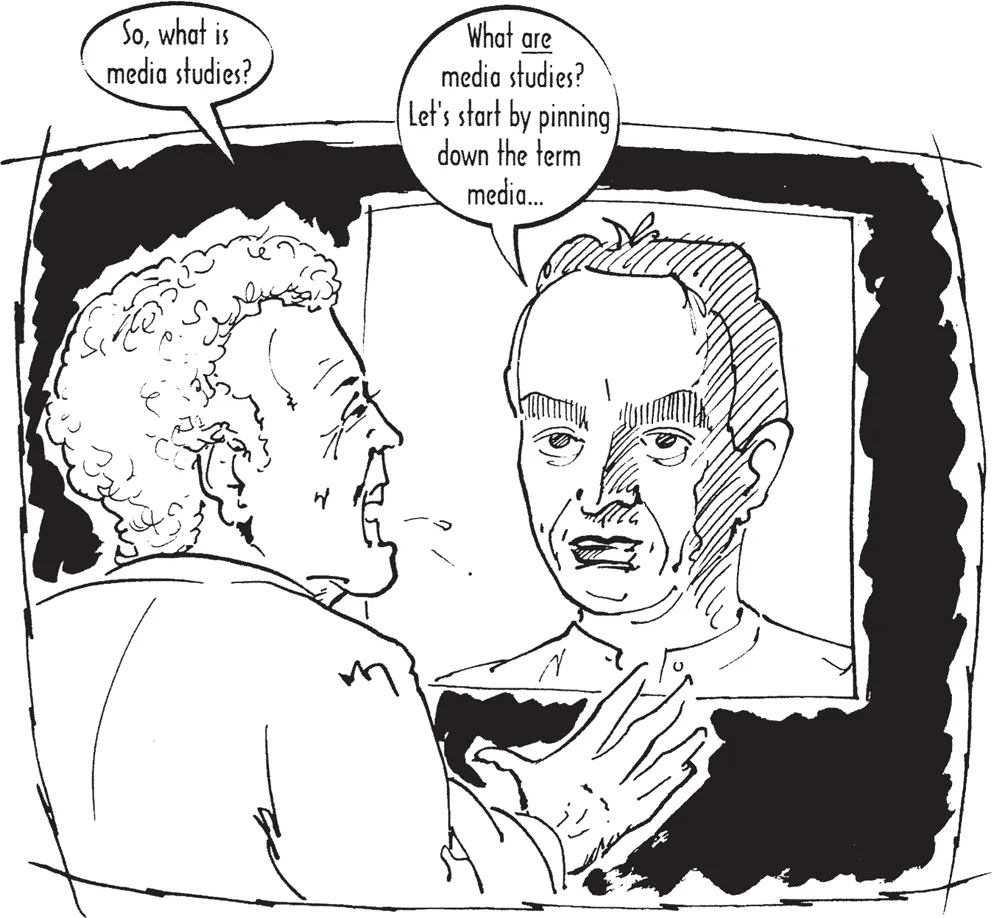
What are media studies? Let’s start by pinning down the term media…

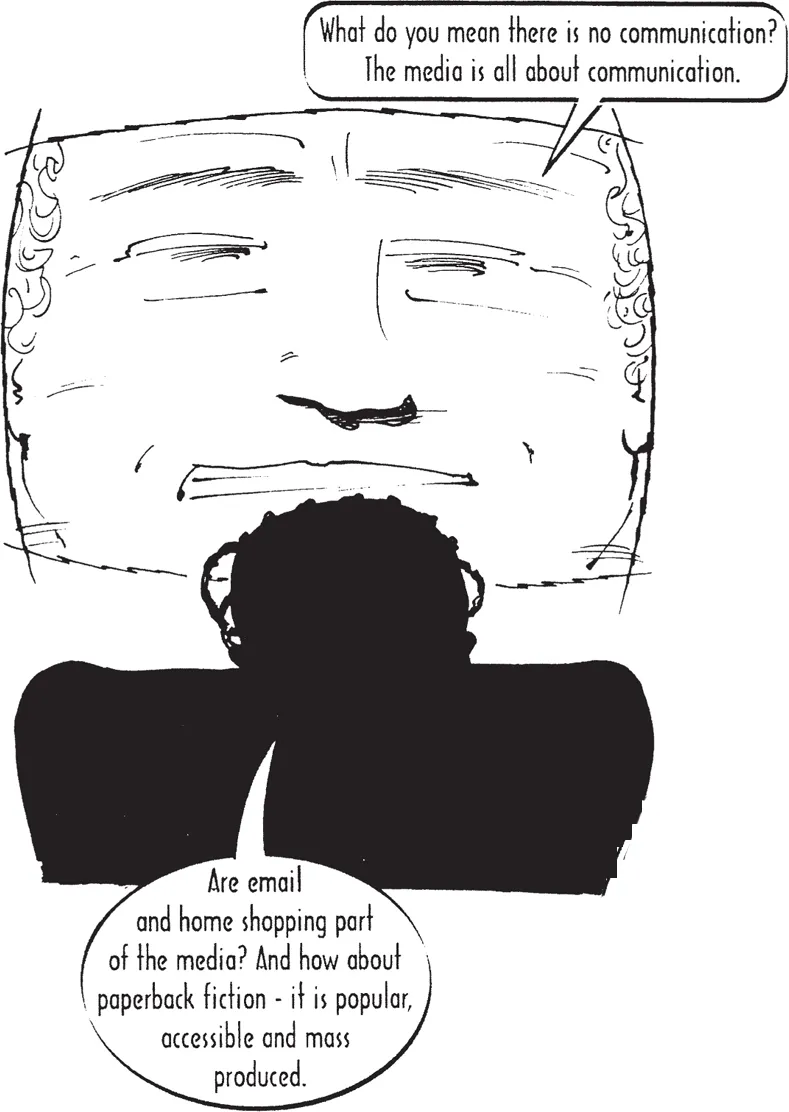
Are email and home shopping part of the media? And how about paperback fiction – it is popular, accessible and mass produced.
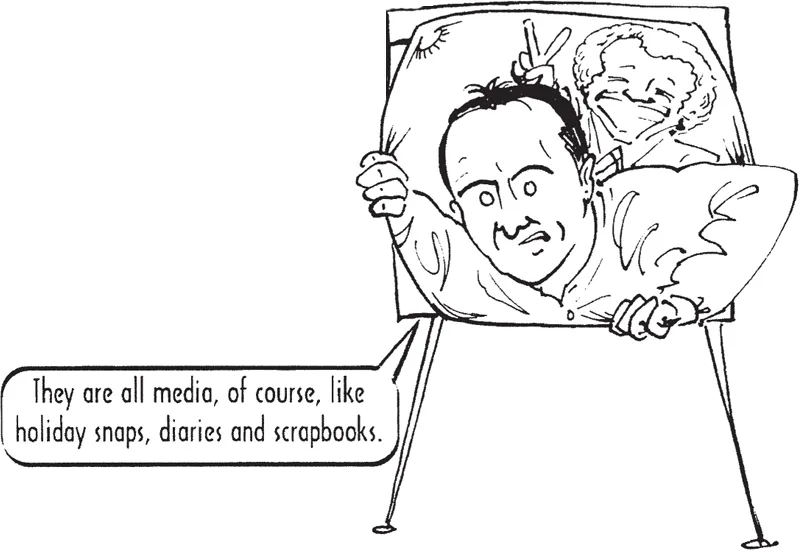

Is this your interview or mine?
Because studying the media is the best way to understand ourselves.

Yes. Media studies is a pseudo-social science and puffed-up nonsense masquerading as academic discipline. An appreciation of what is good and bad on the telly and in the print media should be a spin-off of real academic disciplines, not a subject in its own right.
A pseudo-academic discipline, Mr Cubitt?
Our ideas come from linguistics, sociology, psychology, even maths and physics, as well as film, communication and cultural studies. The open and interdisciplinary nature of media studies terrifies and angers our critics – plus the fact that we have a more radical understanding of contemporary life than any other way of thinking about the world.

Table of contents
- Cover
- Title Page
- Copyright
- Contents
- Why Should We Study the Media?
- Index